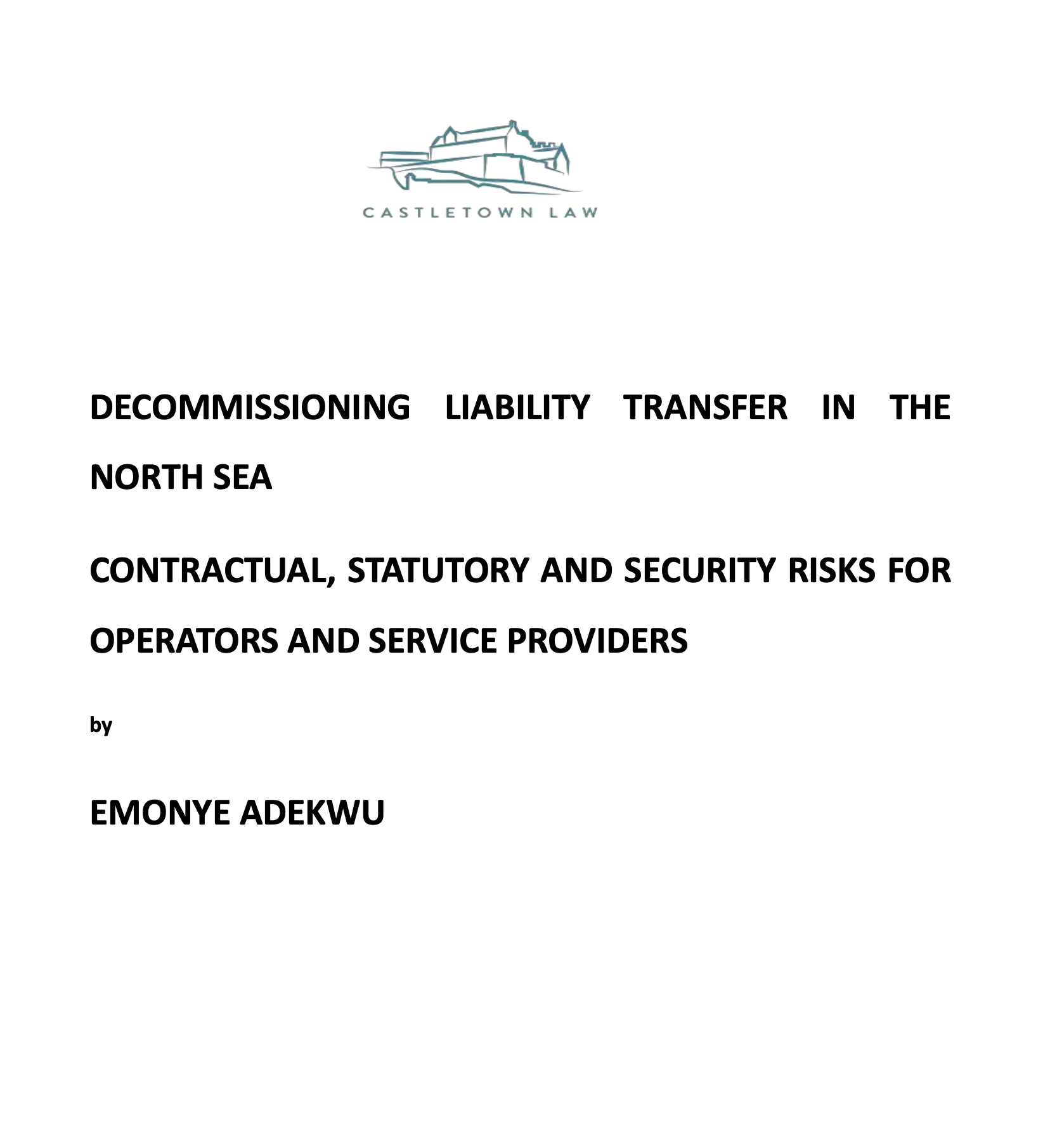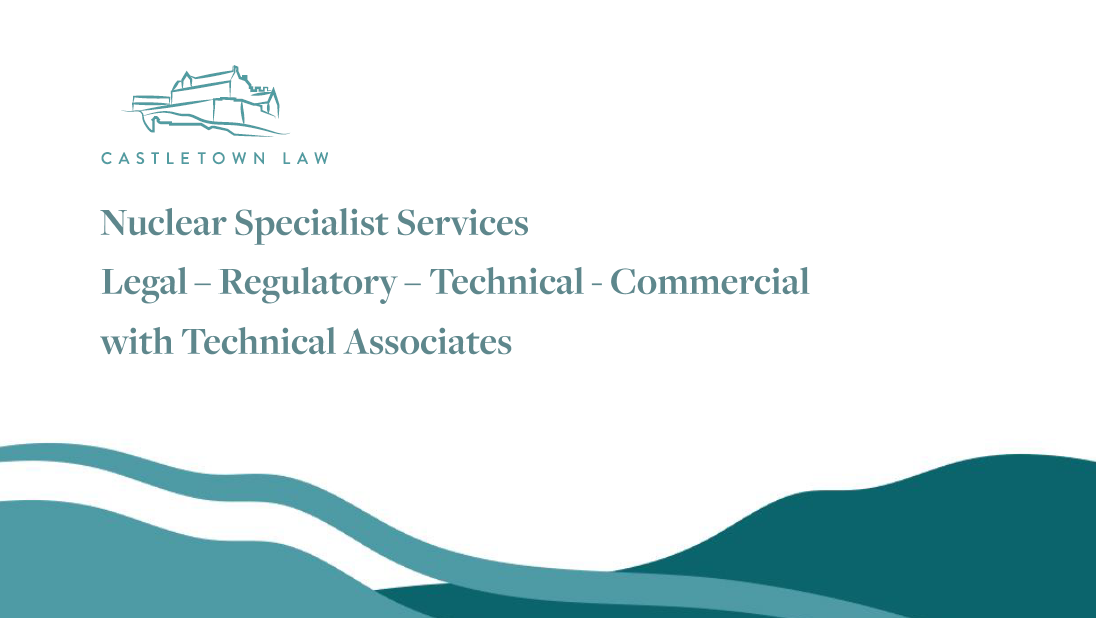Offshore Wind Portugal - Opportunities and Challenges (May 2024)
Portugal’s offshore wind sector is anticipated to accelerate in development and construction as part of the governments ambitious plans for “green energy” production in 2030. Although in Portugal there is a significant and mature supply chain for onshore wind, there is a less robust supply chain for offshore and particularly for floating offshore wind.
Blades and towers are produced in Portugal for the onshore requirements, this includes new onshore (increasing from 6.2 to 10 GW) and repowering existing end of life plants. This expansion in onshore production capacity will likely absorb a large portion of the supply chain capacity through until 2030 and beyond. This combined with the more international approach to offshore wind the high-technical requirements for floating wind design and installation means the supply chain is likely to be diverse and international as has been seen in other jurisdictions.
The projected capacity of the Atlantic Coast of Portugal is significant (see below) and an additional factor in the market opportunity in Portugal is the potential for extending that experience and expertise into the Portuguese speaking West Coast countries of Africa, where similar opportunities are being explored.
The experience development of skills and understanding from the North Sea offshore wind projects has led to the evolution, testing and development of the designs in facilities like the ocean transportation research centre in Plymouth, England. These facilities contribute massively to the growth in understanding of localised components of design and the ability to harness offshore wind for energy generation.
The two principal areas of development from a lawyer’s point of view are the applicable regulations and the development of relevant contracting criteria. To some extent these are interlinked because the procurement process governed by regulation will in most cases require specific delivery obligations to be taken by the developer and those obligations must then be passed down from the developer and allocated appropriately in the architecture of the contract for delivering the operational asset. The discussion below may help explain this interrelationship.
In Portugal, as in other jurisdictions, the applicable local and EU laws will have to be accommodated in the project documentation. This means that in the case of the projects being proposed, (see below list of proposed offshore projects in Portugal - Appendix 1) there may be some changes in the auction process, but we believe it will largely follow the previous auction of rights approach taken elsewhere in Europe. The pressure from active bodies to remove the “negative cost” of bidding in auctions is being countered at both government and academic levels and, in the near future, it is unlikely there will be a dramatic shift from the status quo.
The revised Renewable Energy Directive EU/2023/2413 raises the EU's binding renewable target for 2030 to a minimum of 42.5%, up from the previous 32% target, with the aspiration to reach 45%. In some EU countries, permitting processes can be an obstacle to renewable energy projects in general. To address the issue, the revised Renewable Energy Directive (EU) 2018/2001, as amended by Directive (EU) 2023/2413, includes provisions that simplify permitting processes to help set renewable energy projects in motion, while taking into account legitimate concerns of citizens and respecting environmental standards. In addition a simplified procedure to allow projects to be fast tracked was introduced and entered into force on 30 December 2022 for a period of 18 months (now extended to June 2025) and complements previous emergency measures to tackle the exceptional situation on the energy markets and to accelerate the clean energy transition. The Portuguese proposed procurement by auction in Q2 2024 will fall within this window.
The EU directive and framework includes offshore wind projects and Member States are required to establish a framework for cooperation on joint projects to produce renewable energy including wind.
The incentives to comply with the criteria and timelines are supported by various funding initiatives applicable across “Renewable Energy”
· EU funding for wind energy
· Recovery and Resilience Facility
· Innovation Fund
· Modernisation Fund
· European Investment Bank
· Invest EU
· Just Transition Fund
· Connecting Europe Facility
· Life Clean Energy Transition programme
· EU regional funds (cohesion policy)
· EU renewable energy financing mechanism
· Horizon Europe
To comply with EU requirements, states must provide information on the offshore plan to be achieved and the approach to be taken to procurement. This will include information on goals for the capacity of offshore renewable energy generation to be deployed through to 2035. Member States are encouraged to allocate space for offshore renewable energy projects in their maritime spatial plans, taking into account the activities already taking place in the affected areas. Some exemption criteria apply in circumstances where a member state feels it justified for example in relation to environmental and ecological studies and imposition of criteria where the balance of the risk and mitigation available supports meeting the EU Directive requirements.
To help and support the approach, envisaged government and prospective bidders should take note of specific areas of protection under local laws which will include protection of seabed ecology and environment, application of requirements for studies and consultations with local environment groups, fishing industry representatives, maritime operators, military and defence organisations, and local and international radar and air traffic control systems.
The timing of the Portuguese auction process in Q2 2024 is of great interest as it will be a forerunner in the procedures being adopted to “fast track” projects and will also raise questions around the application of the regulatory structures and what challenges and concerns are raised. There is a material question around whether there may be a legal challenge to the need for the “fast track” approach and around the hierarchy of needs - so should energy production trump environmental protection rules for the sake of expediency. This becomes a more acute issue when the basis of the contracts for purchase of the electricity produced is under written and/or subsidised in CfD’s or PPA’s by public (tax payer) funds. As in other jurisdictions the legal processes will have to be followed and, in some cases, this may thwart the intention of the emergency regulations in trying to speed up delivery of projects.
Against that position a robust and carefully planned auction process in which the requirements of the project in terms of meeting the regulatory obligations imposed under EU and national legislation, will help avoid challenges and if the process also espouses the benefits that can be brought in energy generation collocation and connection to sub-station and TSO facilities. The supply chain benefits in the local economy can be seen in those countries which have embraced significant offshore wind contribution to the energy supply.
The extent to which the risk allocation of projects in Portugal will determine the market interest is evident from the disastrous no-bid auction round in the UK in 2023. The need for dialogue with the industry and framing a regulatory compliant bidding process which is attractive to investors and developers is critical to the success of the process.
This may mean that some development risk or financial support or underwriting of risk may have to be borne by the Portuguese government as it has been in other recent auctions (The Netherlands for example). Government willingness to support regulatory cooperation, speed of delivery of consents and underwriting of risks to some extent seems to be the formula which has seen the best results in recent auction rounds.
For Portugal this is an interesting and substantial challenge to embrace a change in the energy production landscape and to lead a process which can be replicated in Europe and in West Africa.
The information below is taken from contemporary sources pre-dating this paper and so may be subject to change.
The current status of Offshore Wind projects in Portugal shows an unsteady start but new hope is on the horizon:

For further information please visit https://www.4coffshore.com/windfarms/portugal.
As a result of the 2023 procurement process (Notice No.220-A/2023, dated October 30 - declaration of interest period for participation in a competitive process for the development of electro producers based on renewable energy sources of oceanic origin or location) which was disrupted by the advent of the EU Emergency Declaration and the national elections in Portugal, resulted in 50 notes of interest being lodged in the announced intention for large scale floating offshore wind in Portugal’s deep water Atlantic coast development zones. (All listed in appendix 1)
This level of interest and the stated determination of the government to enable Offshore Wind (aligned with the EU position), suggest the auction process to be commenced shortly will have to be handled with care by bidders - taking into account the relevant stakeholder and legal considerations - which are likely to include stipulated compliance with regulated environmental obligation, local participation quotients and economic and social growth criteria and quality standards adherence undertakings.
The level of interest may encourage the Portuguese government to consider an auction for more than the stated 3.5GW currently envisaged.
Pertaining to the relevant national legislative framework, both directly and indirectly applicable to the production of offshore wind energy in Portugal, the following are noteworthy:
· Decree-Law No.15/2022 - establishes the structural organization and operational procedures of the National Electric System (SEM).
· Decree-Law No.38/2015 - planning and management of the national maritime space policy.
· Decree-Law No.151-B/2013 - environmental impact assessments legal regime.
· Law No. 17/2014 -establishes the fundamental principles regarding planning and management of the national maritime space.
· The National Energy and Climate Plan for the years 2021 through 2030 (PNEC 2030).
· Council of Ministers Resolution No. 174/2017 - this approves the Industrial Strategy and the Action Plan for Ocean Renewable Energies.
APPENDIX 1 Developers Registering Interest
(Source: Direção-Geral de Energia e Geologia)












